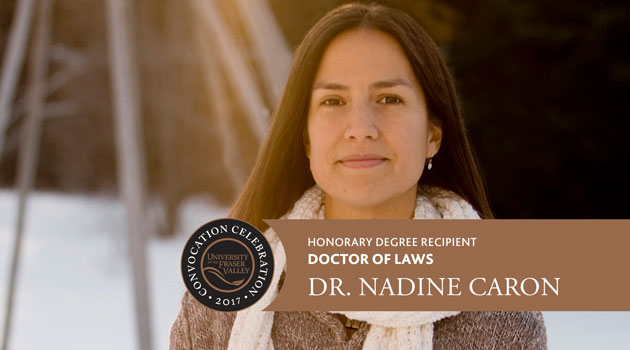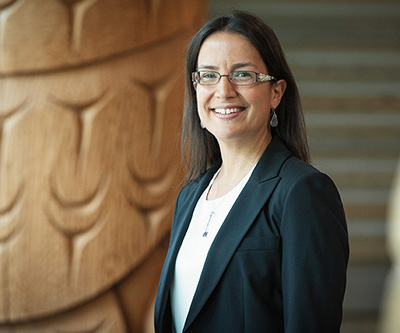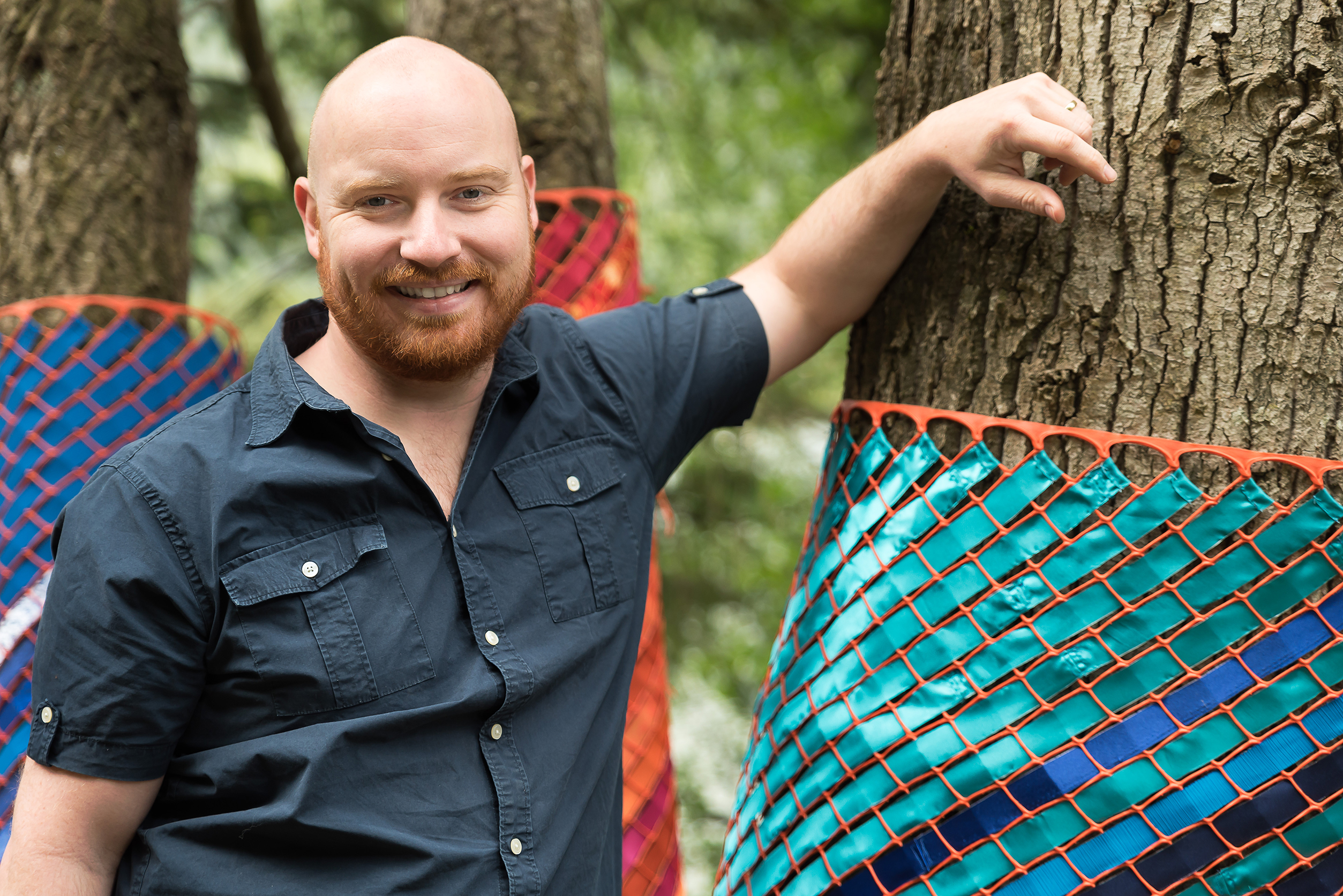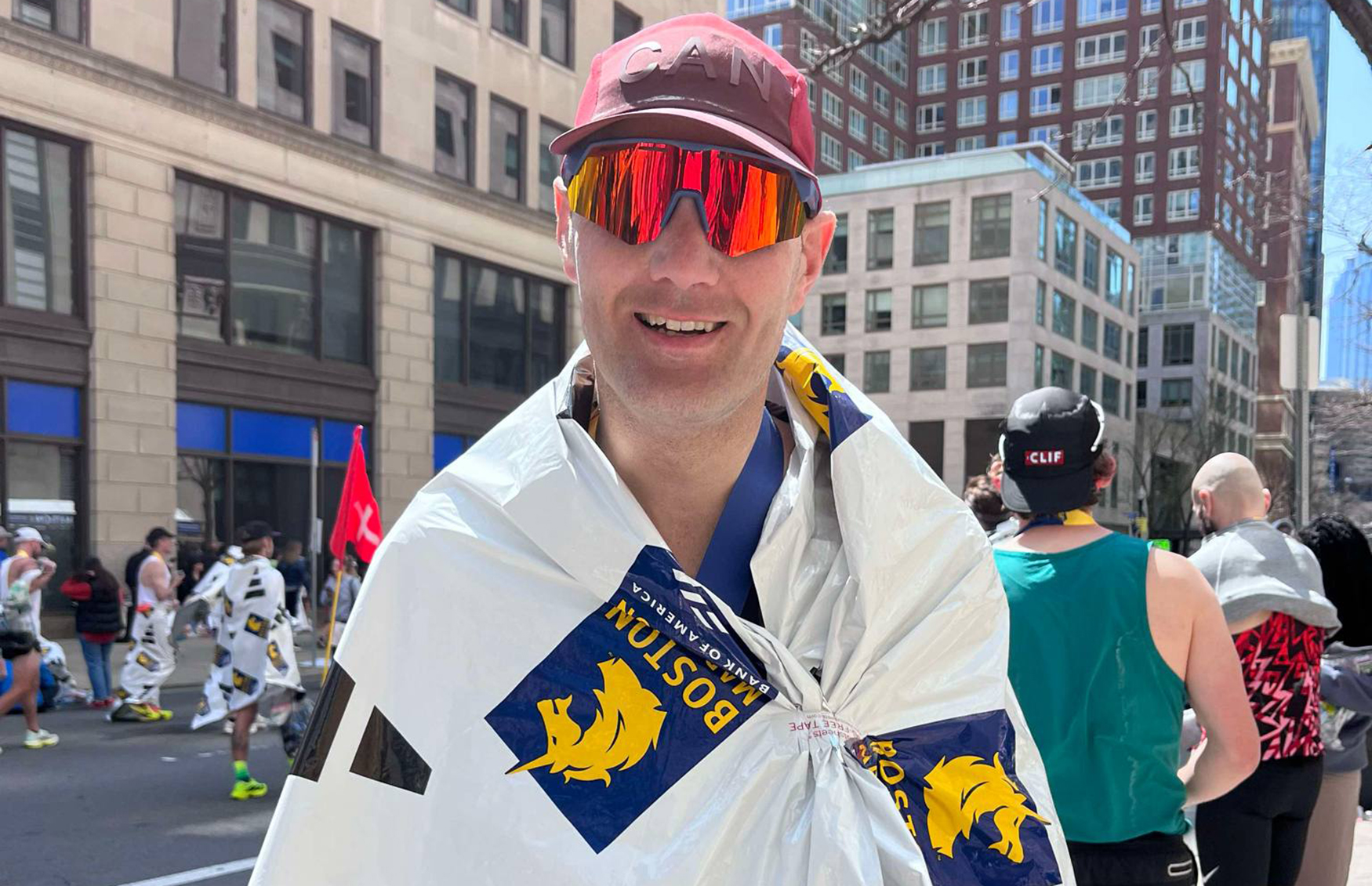Barrier-breaking Indigenous MD Nadine Caron to receive honorary degree from UFV
 She’s a physician and surgeon, leader, professor, researcher, athlete, role model, mentor, coach, and advocate, but when Dr. Nadine Caron started university in 1988, she wasn’t sure where it would take her. She did, however, know it was a path worth following.
She’s a physician and surgeon, leader, professor, researcher, athlete, role model, mentor, coach, and advocate, but when Dr. Nadine Caron started university in 1988, she wasn’t sure where it would take her. She did, however, know it was a path worth following.
Caron will be recognized for her outstanding achievements with an honorary Doctor of Laws degree at the University of the Fraser Valley at its June 7 Convocation ceremonies.
“I wasn’t sure what doors university would open for me, but I knew it was exciting enough to want to explore. My parents made it abundantly clear that education was the key to success.”
Caron, the daughter of an Ojibwe mother who was a teacher and an Italian immigrant father who still works as a mason, listened to her parents. And just as her parents inspired her, Caron and her husband strive daily to inspire their 10-year old daughter.
Recruited as a basketball star, Caron’s main goal was to put the ball through the hoop. But she soon set her sights far beyond the gym, and earned a gold medal as Simon Fraser University’s top undergraduate student.
She has many landmark milestones to her credit, including being the first female First Nations graduate of UBC’s School of Medicine (and UBC’s top student that year) and the first female First Nations general surgeon in Canada, and being named one of Maclean’s magazine’s 100 Canadians to Watch.
While pursuing her surgical residency, she also completed her Master of Public Health degree at Harvard.
She is passionate about health policy and internationally renowned for her advocacy work to address the special health needs of rural, remote, northern, and Indigenous communities.
She gives back to the next generation through mentoring, role-modeling, and public speaking encouraging Indigenous youth to open doors to their future through education.
Balancing all these roles and activities is a challenge that sees her traveling frequently for conferences and presentations, spending weekends writing and editing research projects, and working long hours. But she wouldn’t want to give up any of it.
“The hands-on side of clinical practice is what set me on my path,” she notes. “I love being a physician and surgeon, meeting people in the hospital and clinic. It’s such an honour to hear their stories, not just about their health, but to get a glimpse of the lives they lead.”
The research projects she is involved in reflect the focus of her practice: individuals in rural, remote, northern, Indigenous communities.
“The patients I see tend to meet at least one, if not all four of these descriptions. In Prince George, I am surrounded by people who understand the voices of these people. My research examines issues, trends, and barriers faced by these communities, so that similar populations can learn from it. Through research, I can help people I will never meet, but whom I have compassion and respect for.”
Caron is also an associate professor in UBC’s Northern Medical Program, and co-director of the UBC Centre for Excellence in Indigenous Health, and an associate faculty member at Johns Hopkins Centre for American Indian Health. In addition to her teaching duties, she coaches sports teams in the community of Prince George.
“I am where I am because of coaches, instructors, professors, mentors, and I believe in giving back. In my life, I found athletics to be the key to my future success. When you’re young, you think it’s about putting the ball in the hoop, but through sports I also learned about perseverance, goal setting, teamwork, and experiencing defeat and bouncing back from it. Those are life skills! Through sport, I was surrounded by dedicated, motivated people who inspired me.”
 Caron also mentors medical students and resident physicians.
Caron also mentors medical students and resident physicians.
Being a leader, an Indigenous woman, and achieving so many ‘firsts’ in her field means that many people look to her as a role model. And she’s happy to oblige, both by speaking to Indigenous youth and simply living her life in a way that models how to behave.
“We are all role models, all the time,” she notes. “Our actions and behaviours set expectations as to what is possible. Society never shuts its eyes. Our children are always watching. How you walk and the footsteps you leave is your legacy.”
Another aspect of Caron’s work is advocacy: serving on committees and boards and speaking up about issues she is passionate about.
“Advocacy can be time-consuming and gut-wrenching, and it requires a lot of soul-searching. You have to be willing to stand behind what you say. I believe it is our responsibility to find where in our society we can play this role.”
For all her efforts Caron received the Dr. Thomas Dignan Indigenous Health award from the Royal College of Physicians and Surgeons of Canada in 2016.
Caron could have joined the brain drain and worked in the U.S. or abroad, but she chose to stay in Canada and work in a relatively rural setting.
“I love the Canadian health care system where care is provided on basis of need. It fits who I am. I also love Canada as a country. We have a lot of work to do in the area of truth and reconciliation, but we are on a good path.”
She was “rendered speechless” when she received the call inviting her to accept an honorary doctorate from UFV.
“This honorary doctorate means that UFV is inviting me to be part of a community of people who value education. I like the community focus and responsiveness of UFV, and am very excited about visiting the campus and learning more about it.”
Caron will receive her honorary doctorate at UFV’s afternoon Convocation ceremony at 2:30 pm on June 7 at the Abbotsford Centre. The public is welcome to attend.





